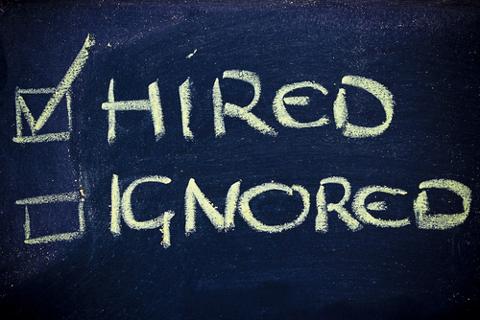Six seconds. That's how much time recruiters usually take to look at your resume. Your stellar academic record and long list of professional accomplishments, all in six seconds.

In a 2012 study, researchers recorded their subjects' eyeball movements, what they zeroed in on, and for how long. The study examined specific behaviors of recruiters as they screened resumes and interviewed candidates over a 10-week period, looking for what caught their attention and what was overlooked. Recruiters looked at both paper resumes and online credentials. The researchers were after three primary issues:
- Did recruiters perceive professionally written resumes differently from those generated by job seekers themselves?
- How long did recruiters actually spend reviewing each resume?
- What is the process that recruiters use to review online profiles?
When it comes to reviewing resumes and online profiles, the recruiters turned out to be a fairly predictable bunch. The study found that professionally organized documents rated higher in usability, showing a 60 percent improvement over those that were compiled by candidates. The most often heard comment was that the re-written resumes were easier to read. The reason's simple: Poorly organized resumes make it more difficult for recruiters to find information and evaluate a prospect. That's not news to many job seekers -- or, it shouldn't be -- but the science of eye tracking confirms it. Professional resumes used in the study contained less data, less clutter and better formatting, which made them easier to read.
Key Data Points
The study's eye-tracking technology showed that recruiters spent almost 80 percent of their resume review time looking at just a few essential elements: the candidate's name, current title and company, previous title and company, start and end dates for current and previous positions, and education. In the six seconds they spent on these bits of information, they absorbed little else. "Beyond these data points, recruiters did little more than scan for keywords to match the open position, which amounted to a very cursory pattern-matching activity," the researchers said.  The images here show where recruiters' eyes focused, and demonstrate the difference made by judicious editing and layout. The resume on the left right was from a candidate before it was professionally edited. The one on the right left had been edited by a professional resume preparation service. The redder the spot, the more attention the information got from the recruiter.
The images here show where recruiters' eyes focused, and demonstrate the difference made by judicious editing and layout. The resume on the left right was from a candidate before it was professionally edited. The one on the right left had been edited by a professional resume preparation service. The redder the spot, the more attention the information got from the recruiter.
Spend Your Six Seconds Well
The bottom line is these results are sobering. They suggest that everything on your resume besides those key points -- name, titles, companies, start and end dates, and education -- is just filler and does little to affect the next step in the hiring process. You have six seconds to make an impression and for a recruiter to figure out whether your credentials fit the job opening. So what can you take away from this research? Several points:
- If you can afford it, use a professional to clean up your resume, or at least have another pair of eyes review it.
- Insist on a strong and clean visual layout, or have a friend help you pare down the clutter.
- Avoid large blocks of text and use plenty of white space.
- Make sure your online profiles are easy to read and review.
- Focus on your current and last positions, and make sure it's clear when you started working at each place, and list a descriptive title for both.
The study was conducted by the Ladders, a career service which among other things offers resume editing service. While the study might somewhat self-serving, the data's interesting, and the study points out a key approach to creating an effective resume. Good luck with your job search, and remember: Make every second count. Images: Wikimedia Commons, the Ladders



